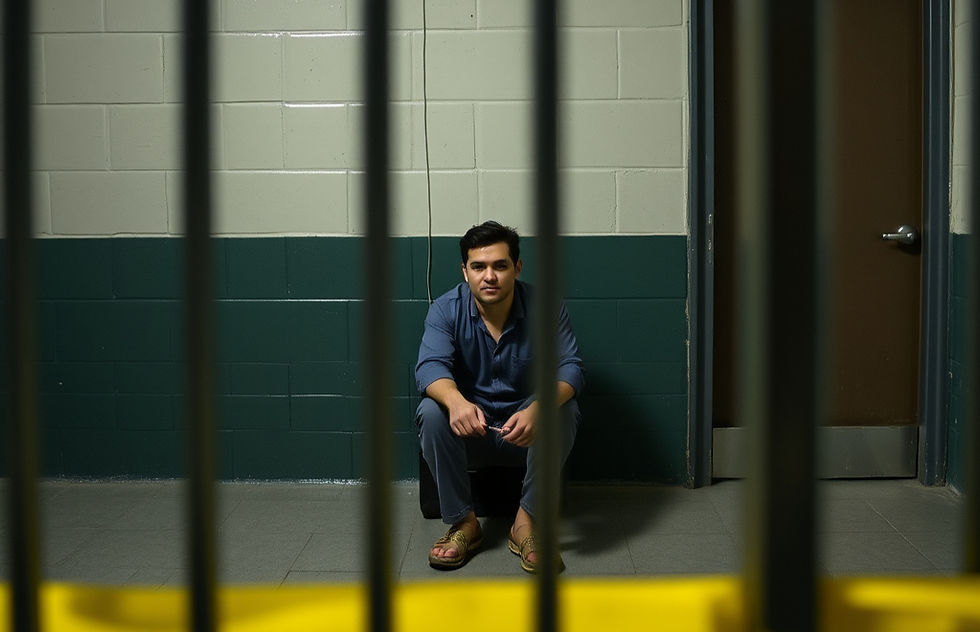No Bond, No Justice: BIA Rules Against Bond Hearings for Undocumented Detainees
- Laureen

- Sep 8, 2025
- 2 min read
On September 5, 2025, the Board of Immigration Appeals (BIA) issued a ruling that strips away one of the last remaining due process protections available to undocumented immigrants in detention. In Matter of Yajure Hurtado, the BIA held that individuals who entered the United States without inspection are categorically ineligible for bond hearings before an immigration judge. (Read the official BIA decision here).

This means that immigration judges no longer have the authority to consider whether a person can safely be released while their case proceeds, no matter how long they have lived in the U.S. or what ties they have to their communities.
What the Case Was About
The case centered on Jonathan Javier Yajure Hurtado, a Venezuelan national who entered the U.S. in 2022 and was granted Temporary Protected Status (TPS). When his TPS expired earlier this year, he was placed in immigration detention and requested a bond hearing. Both the immigration judge and the BIA denied him the opportunity, finding that Section 235(b)(2)(A) of the Immigration and Nationality Act requires detention of those who entered without admission and leaves no room for bond hearings. (Coverage in the Washington Post).
Why This Decision Matters
This ruling does not just affect newly arrived border crossers. It has sweeping consequences for anyone in the United States who entered without inspection, even if they have lived here for years, built families, or contributed to their communities.
Historically, immigration judges could grant bond if a person showed they were not a danger or flight risk. That discretion is now gone. The only path left is for the Department of Homeland Security (DHS) to grant parole—a decision made behind closed doors, inconsistently applied, and rarely granted. In practice, this ruling creates a system of indefinite detention where release depends solely on the government’s discretion.
If you or a loved one are currently detained, visit our immigration detention defense page to learn more about your options.
The Human Cost
Immigrant rights advocates, legal experts, and even some state attorneys general have condemned the decision. They warn it will separate families, traumatize children, and destabilize workforces that depend on immigrant labor. Families who once had a chance to argue for their loved one’s release will now face prolonged detention that can stretch for months or years while cases wind their way through an overburdened immigration system.
What Comes Next
Legal challenges are already underway. Attorneys general from states like Illinois and Massachusetts have filed briefs opposing the policy, arguing that it violates due process and undermines community stability. Advocacy organizations are also mobilizing to fight the decision in the courts and in Congress.
Conclusion
This ruling represents a fundamental shift in immigration law and policy. The right to request a bond hearing—an opportunity to prove you are neither dangerous nor a flight risk—was never guaranteed success, but it was at least a safeguard of fairness. With its elimination, thousands of people are left vulnerable to indefinite detention.
At Katsivalis & Anderson Law, we will continue to monitor this case and fight for the rights of our clients and their families. If you or a loved one are facing detention, contact us today to discuss your case and explore every possible option for release and relief.







